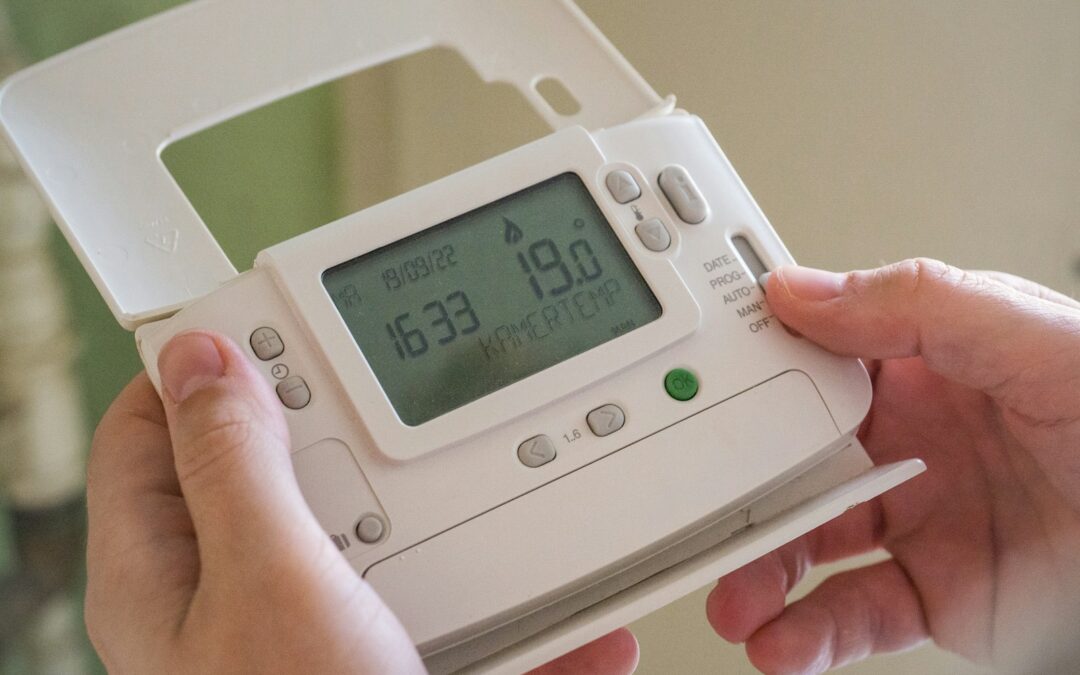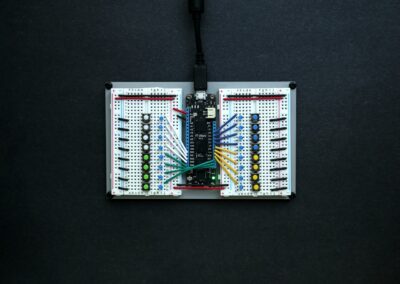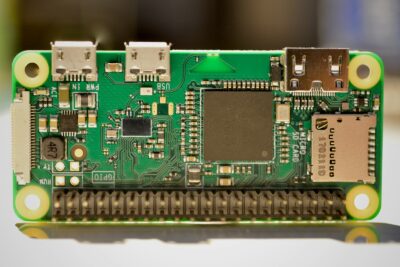Strategic Approaches to Scaling IoT for Utility Providers
Implementing Scalable IoT Architectures
Scaling IoT systems for smart meter deployment involves both horizontal and vertical scaling strategies to accommodate the increased number of devices and the volume of data generated. In regions like Saudi Arabia and the UAE, where technological advancements are rapidly integrated into infrastructure projects, cities like Riyadh and Dubai serve as prime examples of successful IoT system scaling.
Horizontal scaling, which involves adding more nodes to the system, is essential for distributing the load and ensuring that the system can handle a larger number of smart meters. For instance, a utility provider in Riyadh might begin with a pilot project involving a limited number of smart meters. As the project expands, additional meters can be integrated into the network without overloading the existing infrastructure. This approach ensures that each new meter operates efficiently, contributing to a reliable and scalable system.
Vertical scaling, which focuses on enhancing the capacity of existing devices, is also crucial. This might include upgrading the processing power, memory, or data storage capabilities of the central systems managing the smart meters. In Dubai, utility providers have employed vertical scaling to ensure that their data centers can process the influx of data from millions of smart meters, allowing for real-time monitoring and analysis. This ensures that the system can scale effectively to meet the growing demands of smart meter deployment.
Leveraging Advanced Data Management Techniques
Another critical aspect of scaling IoT systems for smart meter deployment is the implementation of advanced data management techniques. Efficient data management is essential for handling the vast amounts of data generated by smart meters and ensuring that this data can be processed, analyzed, and utilized effectively. Utility providers in Saudi Arabia and the UAE have adopted several innovative approaches to manage data more efficiently.
Edge computing is one such technique, where data is processed closer to its source, reducing latency and bandwidth usage. For example, smart meters in Riyadh can process data locally before transmitting it to the central system, allowing for quicker response times and reducing the load on central servers. This decentralized approach to data processing ensures that the system remains scalable and efficient as more smart meters are deployed.
Data compression is another vital technique, enabling utility providers to reduce the amount of data that needs to be transmitted and stored. By applying compression algorithms to the data collected from smart meters, providers can optimize bandwidth usage and storage requirements. This is particularly important in cities like Dubai, where the high density of smart meters generates substantial amounts of data. Efficient data compression ensures that the system can scale without encountering performance bottlenecks.
Ensuring Robust Security and Reliability
As IoT systems scale to support widespread smart meter deployment, ensuring robust security and reliability becomes increasingly important. Utility providers must implement comprehensive security measures to protect sensitive data and maintain system integrity. In the context of scaling IoT systems for smart meter deployment, robust security protocols are essential for preventing unauthorized access and ensuring data privacy.
In Dubai, for example, utility providers have implemented end-to-end encryption and secure authentication mechanisms to safeguard the data collected from smart meters. Regular security audits and vulnerability assessments are also conducted to identify and mitigate potential threats. By prioritizing security from the outset, utility providers can ensure that their IoT systems remain secure and reliable as they scale.
Reliability is equally important, as any downtime or system failures can significantly impact service delivery. Designing IoT systems with redundancy and failover capabilities ensures continuous operation even in the event of component failures. For instance, in Riyadh’s smart grid projects, utility providers have incorporated redundant communication paths and backup power supplies to enhance system reliability. This ensures that the smart meter network remains operational and efficient, even under adverse conditions.
Case Study: Scaling IoT Systems for Utility Providers
Real-World Implementation in Riyadh
A prominent utility provider in Riyadh embarked on a large-scale IoT project to deploy smart meters across the city. The project aimed to enhance energy efficiency, provide real-time usage data, and support dynamic pricing models. Scaling IoT systems for smart meter deployment in this context involved several strategic initiatives to ensure successful implementation and integration.
The utility provider began with a pilot project, deploying smart meters in select neighborhoods to test the system’s scalability and performance. Horizontal scaling was employed by gradually adding more meters to the network, ensuring that each new deployment integrated seamlessly with the existing infrastructure. This phased approach allowed the provider to address any challenges and optimize the system before full-scale deployment.
To manage the vast amounts of data generated, the utility provider leveraged edge computing and data compression techniques. Smart meters were equipped with local processing capabilities, enabling them to analyze data in real-time and transmit only essential information to the central system. This reduced the load on central servers and ensured efficient data management as the number of smart meters increased.
Technological Integration in Dubai
In Dubai, another utility provider focused on integrating advanced technologies such as AI and blockchain to enhance the scalability and functionality of its IoT system. The project aimed to create a smart grid that could handle millions of smart meters, providing real-time data analytics and enhanced security.
The provider adopted a modular design for its IoT system, allowing different components to be developed, tested, and upgraded independently. This flexibility facilitated the integration of AI-driven analytics to predict energy consumption patterns and optimize grid management. Blockchain technology was also integrated to ensure secure and transparent data transactions, enhancing the system’s reliability and trustworthiness.
To address the challenges of vertical scaling, the provider upgraded its data centers with increased processing power and storage capacity. This ensured that the central system could handle the influx of data from millions of smart meters, supporting real-time monitoring and analysis. The successful integration of these advanced technologies demonstrated the potential for IoT systems to scale effectively while incorporating cutting-edge innovations.
Leadership and Management Best Practices
Successful scaling of IoT systems for smart meter deployment requires strong leadership and effective project management. Executive coaching services can play a crucial role in guiding business leaders and managers through the complexities of large-scale IoT projects. In Saudi Arabia and the UAE, fostering a culture of continuous improvement and innovation is essential for maintaining the scalability and effectiveness of IoT systems.
Leaders must prioritize strategic planning, resource allocation, and stakeholder engagement to ensure the success of IoT projects. This involves setting clear goals, defining measurable outcomes, and regularly assessing progress. Effective communication and collaboration among team members, technology partners, and stakeholders are also critical for addressing challenges and achieving project objectives.
Continuous improvement practices, such as regular feedback loops and iterative development, help refine and enhance IoT systems over time. By promoting a mindset of innovation and ongoing development, business leaders can ensure that their IoT systems remain adaptable and capable of meeting evolving demands.
Conclusion
Scaling IoT systems for smart meter deployment and data collection involves strategic planning, efficient data management, robust security measures, and strong leadership. By implementing best practices such as horizontal and vertical scaling, leveraging advanced technologies, and fostering continuous improvement, utility providers in Saudi Arabia, the UAE, and beyond can develop scalable and reliable IoT systems. These systems not only enhance energy efficiency and service delivery but also position businesses for long-term success in an increasingly connected and data-driven world.
—
#ScalableIoTDesign #SmartMeterDeployment #DataCollection #UtilityProvider #SaudiArabia #UAE #Riyadh #Dubai #ArtificialIntelligence #Blockchain #TheMetaverse #ExecutiveCoaching #GenerativeAI #ModernTechnology #BusinessSuccess #LeadershipSkills #ProjectManagement































